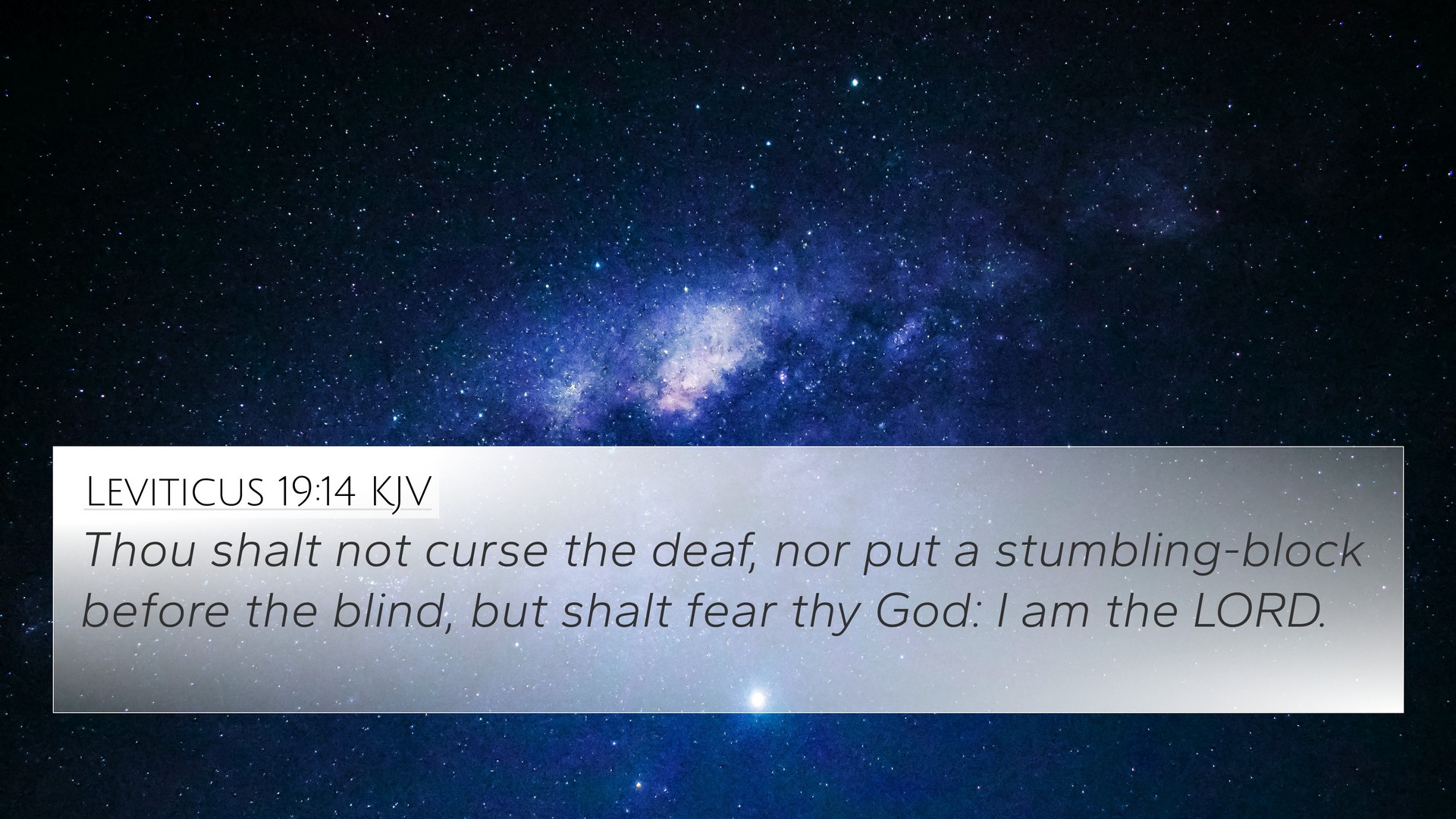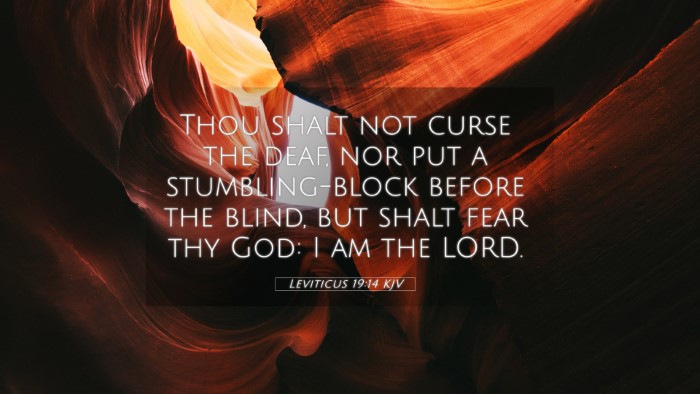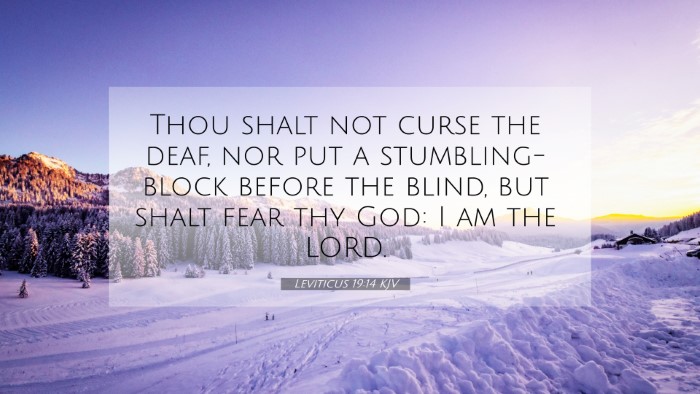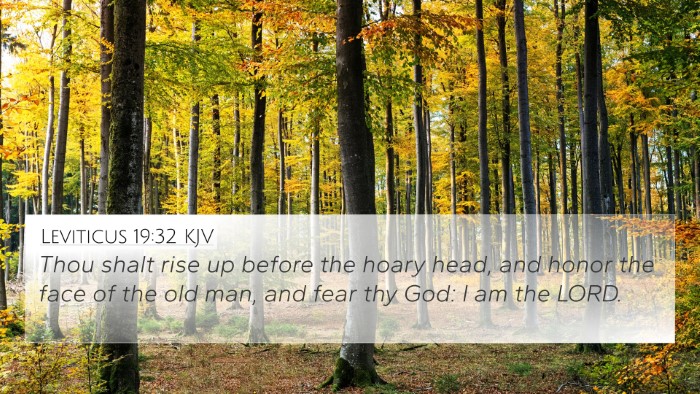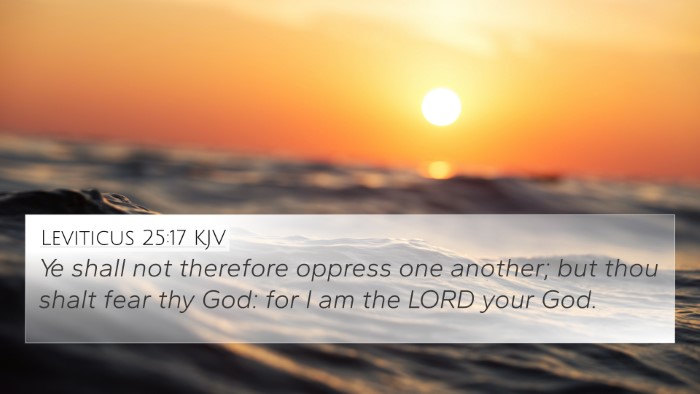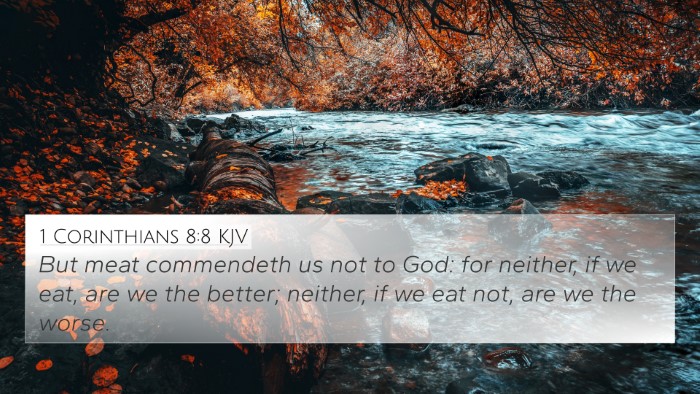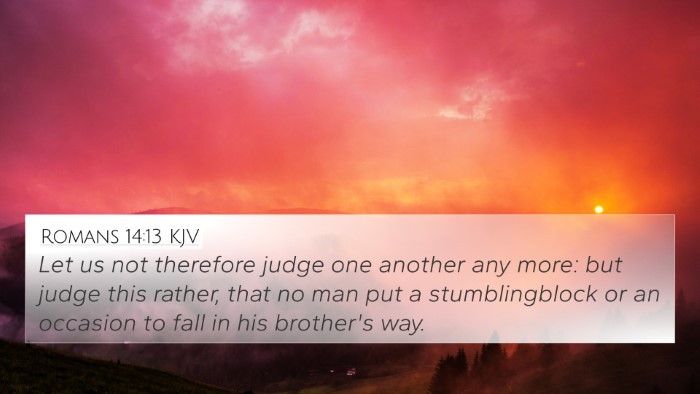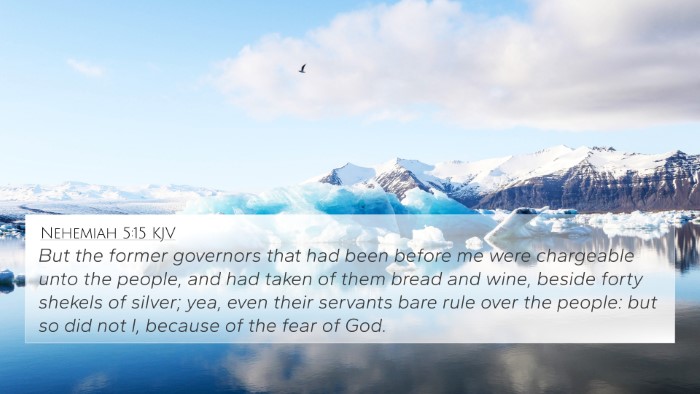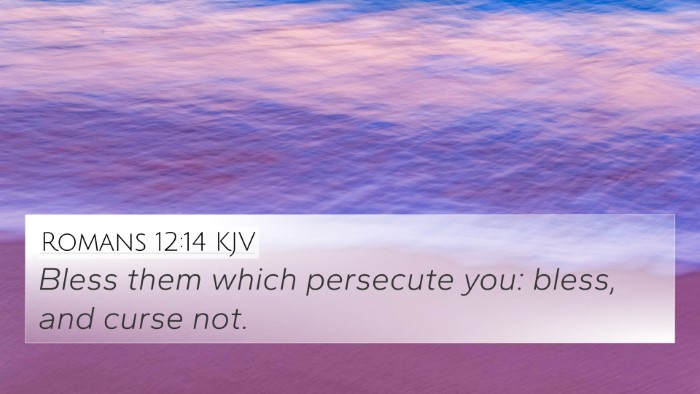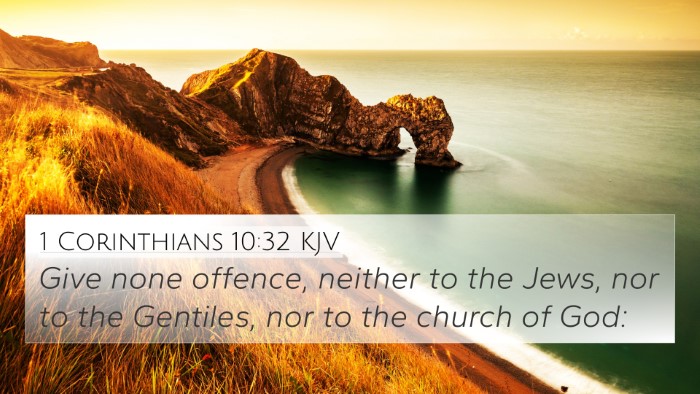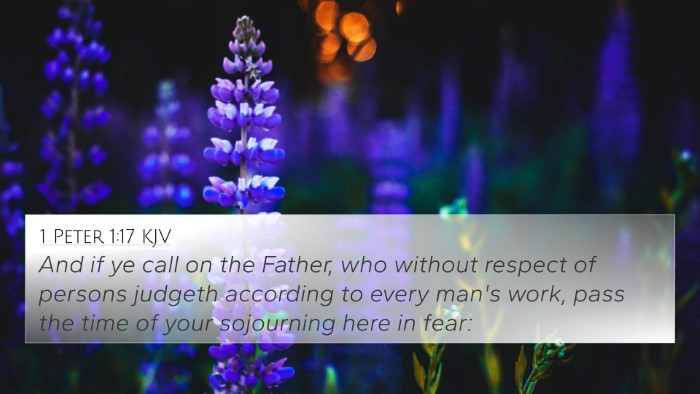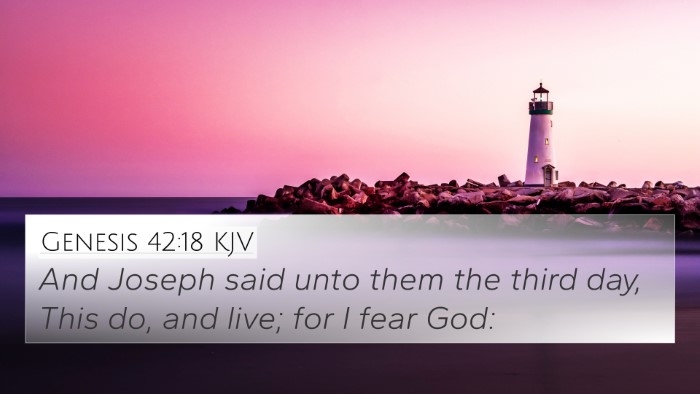Understanding Leviticus 19:14
Bible Verse: Leviticus 19:14 - "You shall not curse the deaf, nor put a stumbling block before the blind, but shall fear your God: I am the Lord."
Summary of Meaning
This verse encapsulates a profound ethical principle rooted in the compassionate treatment of others, particularly those who are vulnerable or have disabilities. It emphasizes respect for individuals’ dignity and the importance of justice and equality in human interactions.
Key Insights
-
Compassion for the Vulnerable: The directive against cursing the deaf or putting obstacles before the blind highlights the need for empathy towards those who cannot defend themselves.
Commentators like Matthew Henry note the moral responsibility individuals have not to exploit the weaknesses of others.
-
Fear of God: The verse ends with a command to "fear your God," reminding the faithful that their actions should be grounded in reverence for God’s standards of holiness and righteousness.
Albert Barnes points out that this fear is foundational to true ethics – acting justly because one recognizes the authority of God.
-
Justice and Fair Treatment: Adam Clarke emphasizes that God's laws regarding social justice serve to cultivate a community based on fairness and respect for every individual.
This reflects the overarching theme of the Law, which seeks to establish a societal fabric where all people are treated with dignity.
Cross References
To fully grasp the significant themes of Leviticus 19:14, here are some critical cross-references:
- Deuteronomy 27:18 - Curses against misguiding the blind.
- Proverbs 22:22-23 - Do not rob the poor; God will plead their cause.
- Matthew 7:12 - The Golden Rule – treat others as you wish to be treated.
- Luke 14:13 - Inviting the poor, crippled, lame, and blind to your gatherings.
- James 2:1-4 - Warning against favoritism that treats the rich preferentially over the poor.
- 1 John 4:20 - Love for God necessitates love for fellow humans.
- Romans 15:1 - We who are strong ought to bear the weaknesses of the weak.
Thematic Connections
This verse is highly relevant when exploring various themes across the Scriptures:
- Social Justice: Emphasizes the importance of caring for the marginalized.
- Empathy and Compassion: Links the teachings of Leviticus with the moral imperatives of contemporary faith.
- Holiness of God: Points to God's character and the expected response from His people to uphold His standards.
Bible Verse Parallels
When conducting a comparative Bible verse analysis, the following themes are often explored:
-
Old Testament vs. New Testament: The ethical laws of the Old Testament are fulfilled and expanded in the teachings of Jesus.
-
The Role of Love: Both testaments stress the command to love one’s neighbor.
-
Protection of the Weak: The consistent biblical theme of advocating for those who are vulnerable can be connected through various scriptures.
Conclusion
Leviticus 19:14 serves as a vital reminder of the moral imperatives set forth in Scripture. Its teachings encourage believers to extend compassion and uphold justice, embodying God’s character in their lives.
